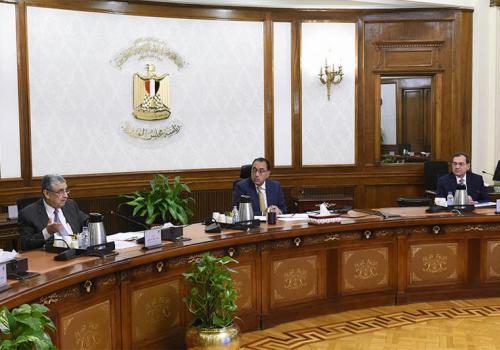Egypt has exported two additional natural gas shipments, Minister of Petroleum and Mineral Resources Tarek El-Molla said on Thursday, nearly one month after the country put its power saving scheme into practice. “The decision to rationalise electricity consumption contributed to saving large quantities of gas used in operating power stations, and two shipments of natural gas were exported, in addition to the usual quantities of gas [Egypt] exports,” El-Molla said in a cabinet meeting. In August, the Egyptian government announced a plan to reduce and rationalise energy and water consumption nationwide amidst the global energy crisis. The plan includes applying the daylight-saving time settings in malls, switching off lights on government buildings’ facades at night and after the official working hours, except for the service sectors. It also includes reducing the lighting of streets and squares, clubs, stadiums and sports institutions, and standardising energy-saving LED lights in all stadiums and youth sports clubs. Through the plan, Egypt seeks to save 15 percent of the natural gas used for electricity generation, exporting it instead to bring in more foreign currency amid the spike in the price of oil and basic goods, according to a cabinet statement on 10 August. Today’s meeting was headed by Prime Minister Mostafa Madbouly to follow up on the results of the recently announced plan and was attended by Minister of Electricity Mohamed Shaker and Minister of Local Development Hesham Amna alongside El-Molla.
Shaker said during the meeting that in order to save natural gas used in power stations, the ministries of electricity and petroleum have agreed on the quantities of fuel oil to be used in power stations, according to a cabinet statement released on Thursday. Amna reviewed the steps taken to rationalise power nationwide, including street lighting and operating hours of shops and malls, as well as the executive steps rationalising power at government buildings. Madbouly ordered Amna to prepare a report detailing the results of applying these decisions in each and every governorate, stressing that he himself is following the results of the power saving decision. During a meeting with the country’s 27 governors, Madbouly said that saving 10 percent of gas used for electricity generation and redirecting it for export will bring in approximately $300 million per month, while saving 15 percent will bring in $450 million per month. Recently, the country has tested running power stations on diesel and fuel oil instead of natural gas, and it saved it $100,000-$150,000 per month, Ayman Hamza, spokesman for the Ministry of Electricity, told Al-Ahram Weekly last month. Egypt has an electricity surplus of more than 25 percent and is self-sufficient in natural gas. After achieving self-sufficiency in natural gas in 2018, Egypt sought to use its position on Europe’s doorstep to become a major supplier of liquefied natural gas (LNG) to the continent, which is transitioning away from other fossil fuels. This is based on Egypt’s huge gas discoveries and production in recent years, most notably the giant Zohr gas field off the Mediterranean. The gas field holds an estimated reservoir of 30 trillion cubic feet (tcf) of gas.
